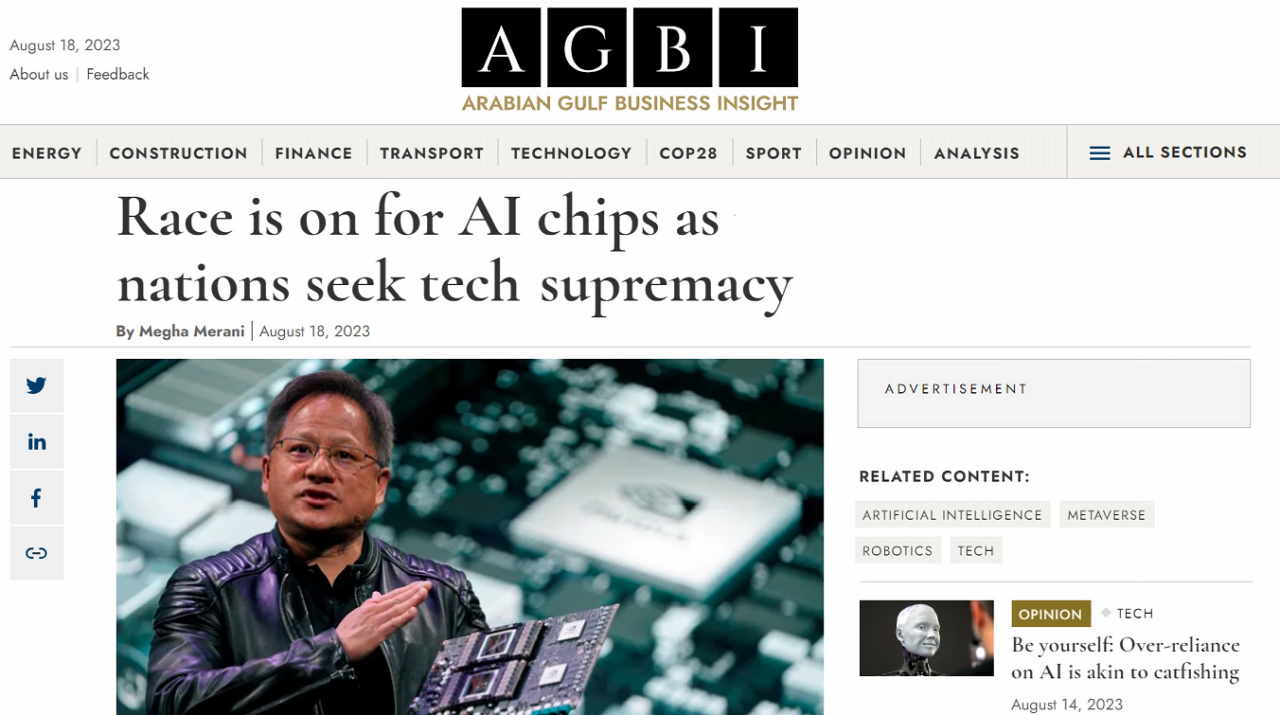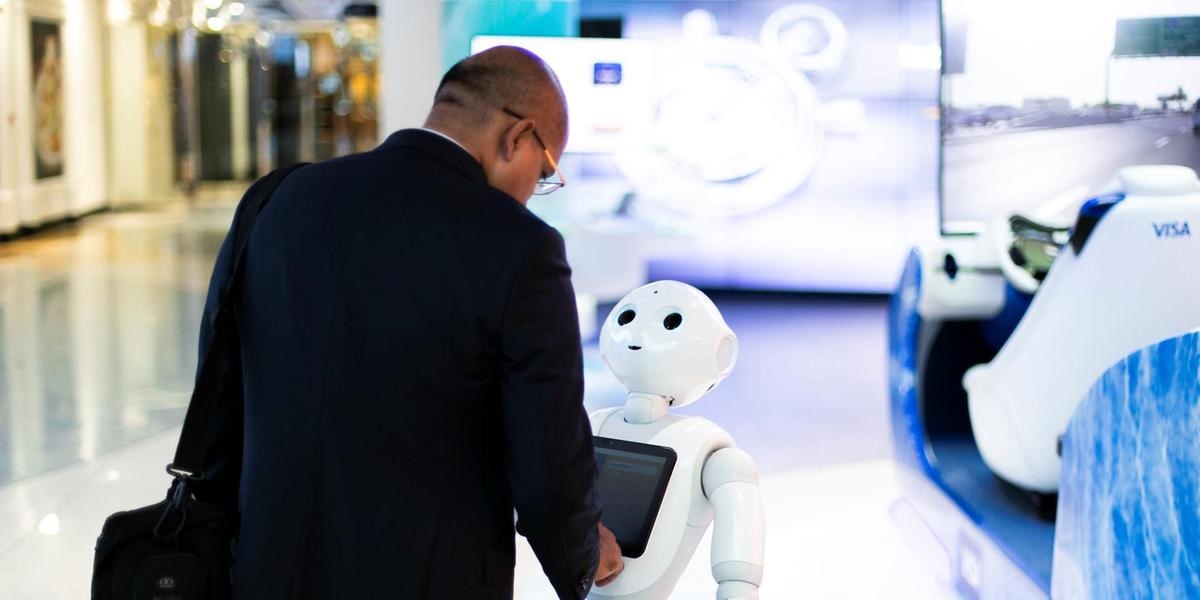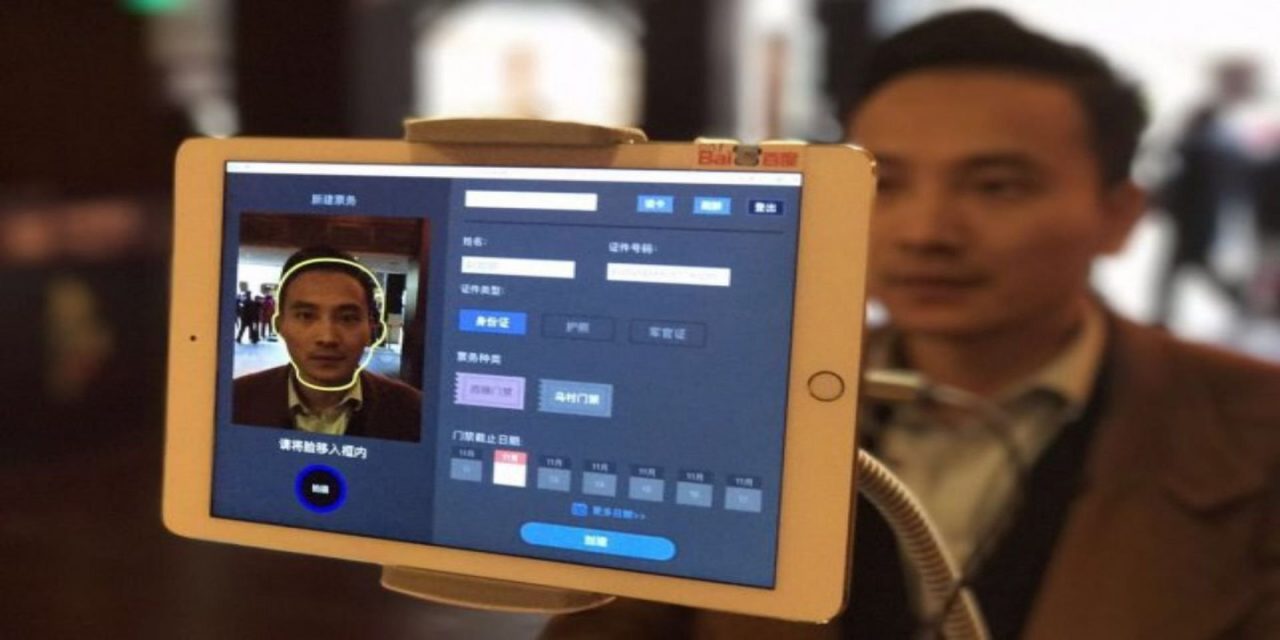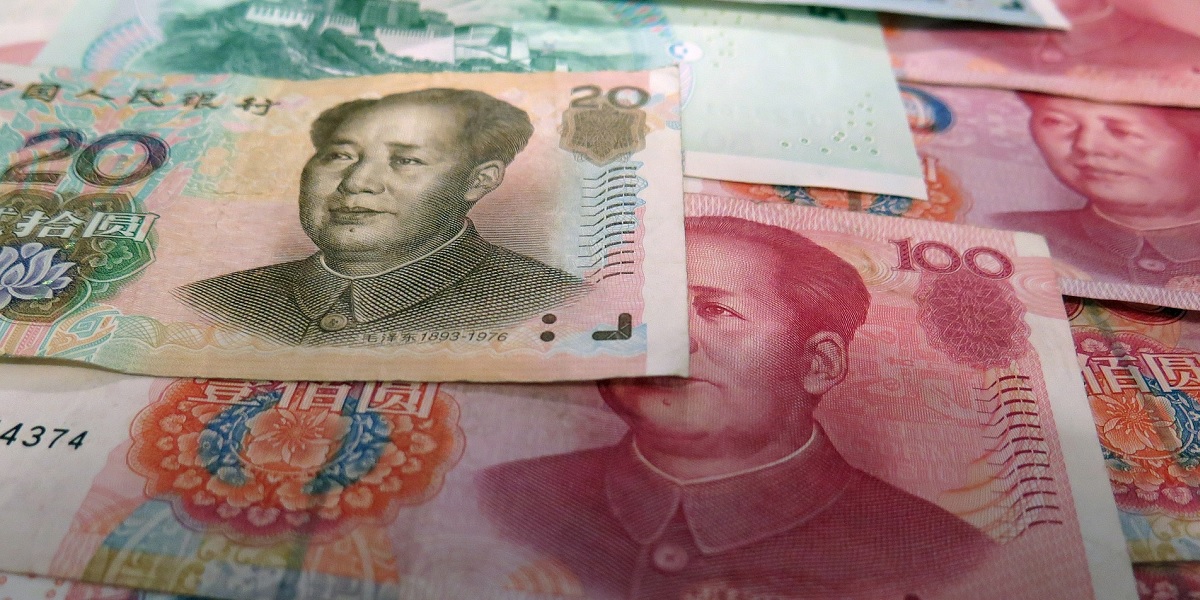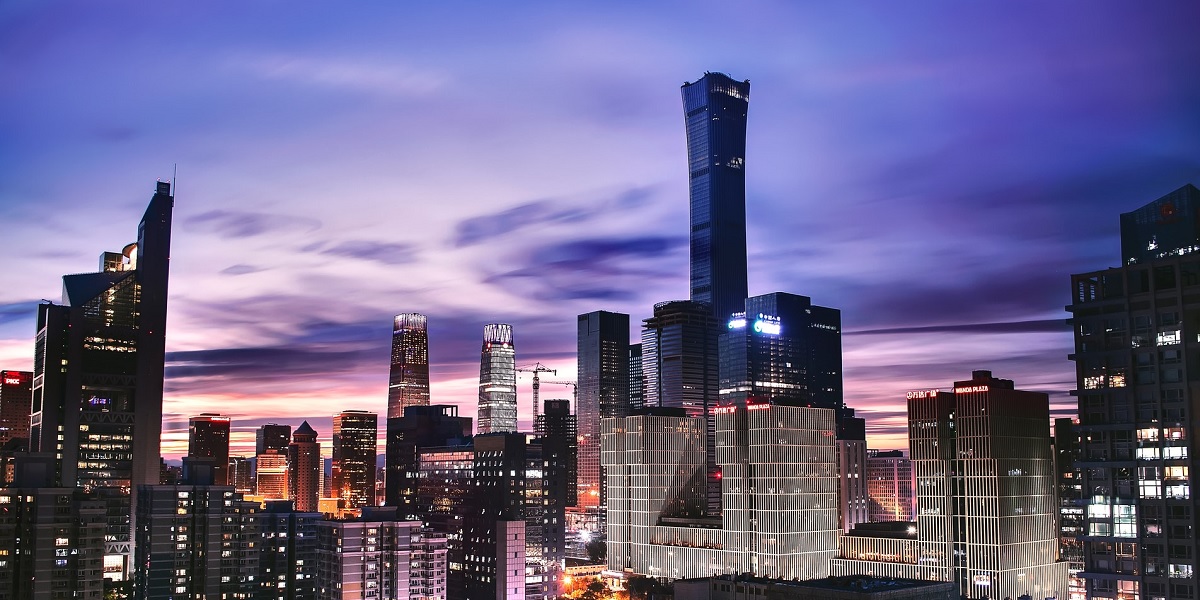AI diplomacy has added a new dimension to international relations and the United Arab Emirates is working hard to build bilateral ties that boost its AI capabilities. It’s also using its AI successes in government and forward looking AI policies to enhance its international reputation.
The UAE’s appetite for artificial intelligence is plain to see for anyone browsing its daily news media. The country’s leadership was one of the world’s first to identify AI as a top priority for government planning and policy, announcing the UAE’s national AI strategy in 2017 and appointing the world’s first minister for AI.
This focus at the top has helped make AI a priority across business, education and the whole public sector. These days, the prospect of AI seems to be embedded into every government programme, public initiative and commercial deal.
It has also now become commonplace to see diplomatic communiqués that mention artificial intelligence. It seems, AI diplomacy is on the rise. The UAE’s foreign relations meetings and forums over the past few weeks with Azerbaijan, Japan, France, Greece, Luxembourg and others have all touched on artificial intelligence.
The GCC has always relied on foreign technology firms and so technology has always had its place in the region’s diplomacy. Over the past few years, the AI race has brought new focus to technology in foreign policy, in particular after the arrival of the Covid-19 pandemic.
Israel-UAE tech collaboration on the fast-track
The historic agreement to normalise bilateral relations between Israel and the UAE last August became the diplomatic event of the year. The agreement considered many economic, trade and security issues: cooperation in energy, water and developing a coronavirus vaccine were pinpointed at the time. However, much of the engagement between the two countries that followed has been tech-centric. In fact, the UAE’s minister of state for AI, Omar bin Sultan Al Olama, last year called the new technology collaboration between Israel and the UAE an ‘undeniable need’.
Shortly after the accord was signed, Abu Dhabi-based AI firm Group 42 announced the opening of a wholly-owned subsidiary in Israel, following memorandums of understanding with Israel Aerospace Industries (IAI) and Rafael Advanced Defense Systems Ltd., and this year formed a joint venture with the latter. The group’s Mohamed bin Zayed University of Artificial Intelligence (MBZUAI) signed an agreement Israel’s Weizmann Institute of Science to create joint AI research and development programmes.
A number of other significant partnerships were signed between Israeli and UAE business groups in 2020. Businessman Abdullah Saeed Al Naboodah partnered with Israeli venture capital giant OurCrowd to form Phoenix Capital, a $100 million fund to back technology investments between the two countries. Meanwhile, the UAE’s in-person tech trade events have seen planeloads of Israeli businessmen attend over the past year.
However, it would be a mistake to assume that the UAE is inclined to ‘put all its eggs in one basket’. The Emirates has a long-standing policy of building bilateral relations with almost all countries across the world, but AI diplomacy has given some of these new purpose. Reem bint Ibrahim Al Hashemy, the UAE’s Minister of State for International Cooperation, recently described Finland as one of the country’s most important partners in innovation and artificial intelligence. The UAE also seems to have stepped up engagement with Estonia on the back of the Baltic state’s success in leveraging big data and smart systems.
China-UAE relations bring R&D to the fore
One of the UAE’s most significant technology collaborations is its deepening relationship with China. Although diplomatic relations have been established for many years, President Xi Jinping’s 2018 visit to the UAE seems to have taken relations with China to a new level. This has included cooperation on combatting the coronavirus pandemic (for example, the UAE fast-tracked human trials of Sinopharm’s Covid-19 vaccine), energy, trade, investment, infrastructure, and high technologies including 5G, big data, and AI.
Increasingly, the Chinese and Emirati institutions are collaborating on technology, research and innovation. An M.o.U. on higher education was signed with China’s ministry of education during an official visit to Beijing by the Crown Prince of Abu Dhabi Sheikh Mohammed bin Zayed Al Nahyan in 2015. That M.o.U. has paved the way for partnerships between universities and research institutions. Abu Dhabi’s Masdar Institute of Science and Technology (now part of Khalifa University) signed an agreement with Tsinghua University, sometimes referred to as China’s MIT, during the state visit.
Sheikh Mohammed bin Zayed returned to Beijing in 2019, where he met Wang Zhigang, China’s Minister of Science and Technology at Tsinghua University and was awarded an honorary professorship by the university for his role in supporting science, technology and innovation.
Khalifa University of Science and Technology signed a joint research agreement with Tsinghua University, during the same visit. Khalifa University, which opened its Robotics and Intelligent Systems Institute the same year, also has agreements with Georgia Tech, Korea Advanced Institute of Science and Technology (KAIST) and Massachusetts Institute of Technology (MIT), among others.
The UAE mission to Beijing also returned with a deal signed between Abu Dhabi Investment Office (Adio) and Chinese AI giant SenseTime to locate its Europe, Middle East and Africa (EMEA) AI Centre of Excellence in in the emirate.
New collaboration opportunities are being reviewed on a regular basis. China’s top scientific institution, the Chinese Academy of Sciences, signed a joint agreement on scientific research earlier this year with the United Arab Emirates University. Meanwhile, a few weeks ago, Dr. Sultan bin Ahmed Al Jaber, UAE Minister of Industry and Advanced Technology, and managing director & group CEO of ADNOC Group, spoke about the two countries growing technological cooperation at the 2021 Pujiang Innovation Forum in Shanghai.
Expo 2020 Dubai to grandstand tech cooperation
The biggest opportunity for the UAE to strengthen and build on state-backed technology cooperation this year is Expo 2020 Dubai (1 October 2021 to 31 March 2022), at which China has one of the largest national pavilions. Covering 4,600 square metres of space, the ‘Light of China’ pavilion will highlight the country’s achievements in information, science, technology and transportation. Exhibits include FAST (the five hundred metre aperture spherical telescope), the Beidou satellite navigation system, plus the latest 5G and artificial intelligence technologies.
Expo 2020, which is taking place under the theme ‘Connecting Minds, Creating the Future’, is sure to be the most heavily tech-focused World Expo ever to take place, where visitors will be able to experience how AI, A.R., V.R. and other future technologies can be used for education, green energy, urban mobility and many other fields.
Many of the GCC’s biggest trading partners are naturally using Expo 2022 to showcase their countries’ science and technology capabilities. For example, the USA Pavilion will showcase innovations and technology from urban mobility to quantum computing. While, according to Simon Penney, Her Majesty’s Trade Commissioner for the Middle East, artificial intelligence will be a key theme for the United Kingdom Pavilion at Expo 2020 Dubai, reflecting already strong collaboration between the UK and UAE in AI and advanced technologies.
Half of Expo 2020’s twelve premium partners are technology-related, including Chinese AI and Internet of Things company, Terminus Technologies which, as the official robotics partner, will deploy 150 service robots across the expo. Other premium partners include Accenture, Cisco, SAP, Siemens and UAE telecom provider Etisalat.
With 190 countries expected to participate in the six-month long exhibition, we can expect Expo 2020 Dubai to facilitate plenty of opportunities for AI diplomacy, AI collaborations and new AI deals.
This article was originally published as ‘A letter from the Gulf’ in The AI Journal.
Also see the previous ‘Letter from the Gulf’


